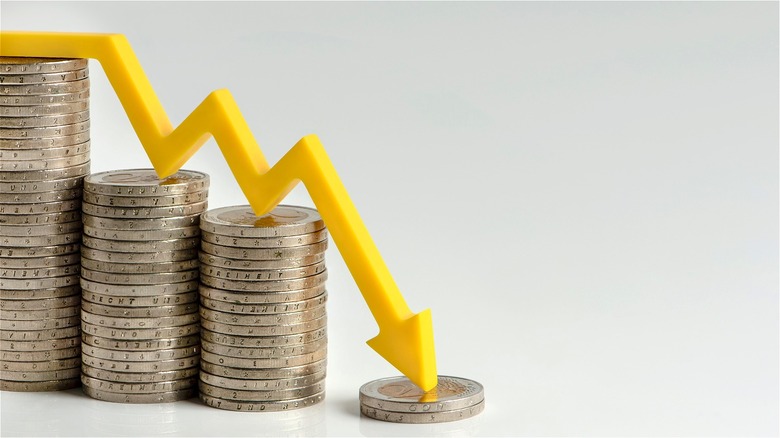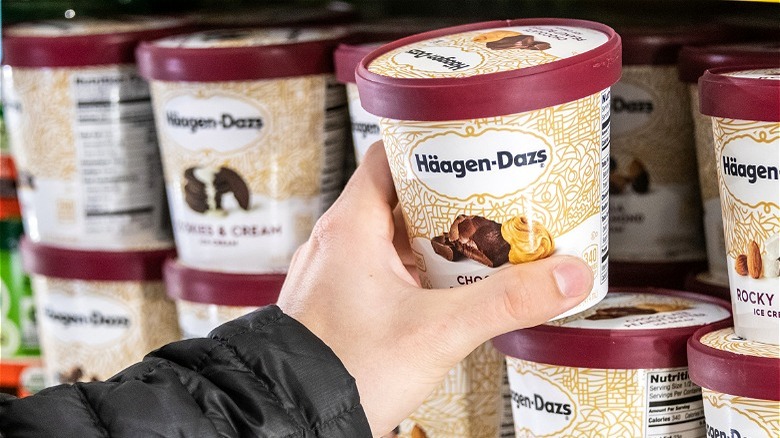The #1 Food That Gets Left Behind In A Recession
The whispers of a recession in present-day America sound more and more like the elephant in the room. Most of us fear the idea of one, especially since its brief resurgence amid the COVID-19 pandemic (per CNBC). Yet, is it actually going to happen in 2022?
According to Forbes, the definition of a recession is somewhat gray. Some researchers categorize a recession by back-to-back quarters of gross domestic product (GDP) in negative standing. Yet, according to the National Bureau of Economic Research, per Forbes, a recession is "a significant decline in economic activity that is spread across the economy and that lasts more than a few months." Though experts say the country is not currently in a recession, consumers certainly aren't feeling 100% about the economy.
For one, most Americans can't deny the near-insurmountable rising cost of food thanks to inflation. The Bureau of Labor Statistics reports that the Consumer Price Index for food rose just 0.8% in August, but on a 12-month average, the cost of food remains 11.4% higher than it was last year. High food prices and an uptick in "shrinkflation" have many of us changing our food spending habits. Curiosity may have you wondering just what grocery items customers forgo during times of economic hardship, and the findings aren't as surprising as you'd expect.
More economic strife means less ice cream
We can look to the Great Recession to see what grocery items were impacted the most in the late 2000s. According to one 2021 study, the period marked a decrease in the consumption of produce, fast food, sodas, and other sugary products.
You can already gauge how a recession will affect your grocery hauls when you consider the overall impact of inflation on your current spending habits. According to Supermarket News, the rising cost of consumables has led 46% of Americans to buy fewer non-essential items, with 66% admitting to a more money-conscious mindset.
New research just released by GlobalData confirms that the "indulgent" food category will take the hardest hit amid inflation costs from now until 2024. Not only does this food category include all savory snacks, like chips and popcorn, but it also comprises beloved chocolates and ice cream confections. According to GlobalData, ice cream specifically has unavoidable "costs around freezing that will have to be passed on to the consumer as energy costs continue to rise." With colder seasons approaching, ice cream will be nudged even further into the non-essentials category for most American shoppers.

